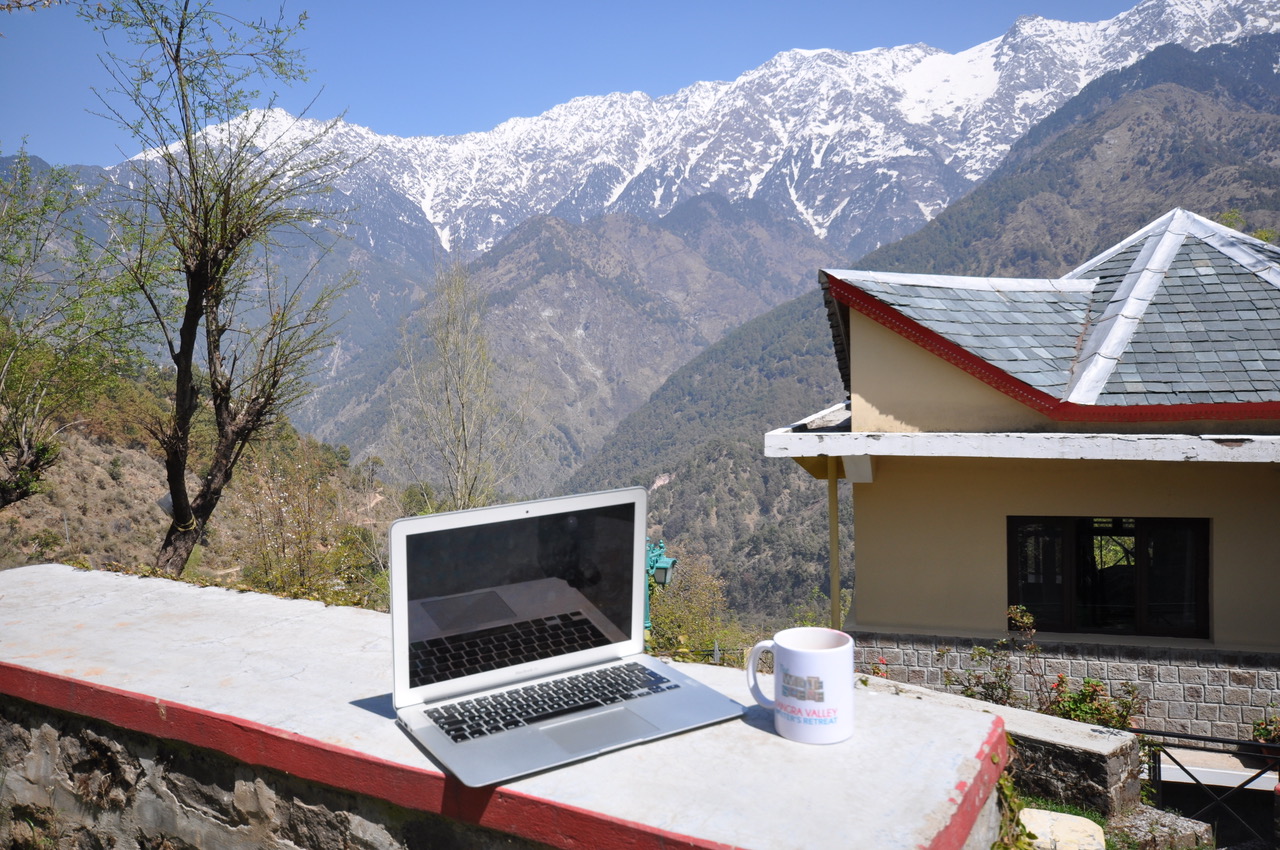This blog was posted on June 11, 2019.
“How much better is silence; the coffee cup, the table. How much better to sit by myself like the solitary sea-bird that opens its wings on the stake. Let me sit here for ever with bare things, this coffee cup, this knife, this fork, things in themselves, myself being myself.”
― Virginia Woolf, The Waves
How often have I wanted to take a short trip to a hillside town or a quiet eco-village to recollect my thoughts? Honestly speaking, almost every day. Even better, if I come across like-minded people, I mean writers. A writer’s conference is too formal, and a literary workshop hardly offers any time for exploring the surroundings. A writing retreat suits me perfectly, where I can meet and work with other writers, in a more intimate setting. A literary retreat is a great combination of workshops, tours, and interaction, and since most of them are in beautiful locations with scenic backdrops, I can also go for guided tours. And of course, find enough time for writing. Whether you book a place for yourself in a literary retreat or create your own writing retreat with friends, plan your activities well in advance. Here, I have suggested seven must-do activities on a literary retreat.
1. Write What would you do if you had six hours of uninterrupted time for writing at a faraway literary retreat? I would have surely given up everything to be there. Really! A professional novelist or an amateur writer, we all crave for some time alone, to focus on what we want to write. A literary retreat or a writing retreat is the best place for you to get started on the novel you have been planning to write or think of a meaningful ending. Write when you want to, read out aloud (hey, no one's watching), revise on your own, rewrite a few sections. You will be amazed at your own thinking; how you come up with new ideas of unfolding the story in a few more layers, with far better results than you expected.
Re-read the opening pages and give it a second thought, stepping in the reader’s shoes or the finicky publisher’s flip-flops. You might want to add something you thought of adding a few weeks back. Or you might want to change it entirely, now that you have discovered a fresh perspective.
2. Read A literary retreat is also when you have abundant time to read, your manuscripts, published or unpublished works, books that you could not find time to read, books of your favorite authors (for inspiration) and of course, writings of other retreat members. You will discover different styles of writing, approaches to writing, and ways of expression. Reading each other’s works is good for understanding the differential treatment of the same subject, genre or form. It also promotes a sense of camaraderie among the retreat members. This goes a long way in building mutually supportive writing buddies. This is one thing that all writers need along their journey.
3. Interact One of the best things about literary retreats is the interaction between aspiring writers and publishing industry stalwarts. Published Authors and Editors of Leading Publishers. Imagine interacting informally with someone like Premanka Goswami (who has been named ‘Editor of the Year’, and is the Senior Commissioning Editor, Penguin India) about expectations of a big publishing house or getting expert tips on writing query letters. Yes, in the upcoming retreats planned by TheWriteScene.com in Dubai (October) and Kangra Valley (November), you can do all of that. At most retreats, the authors, literary agents, and editors are more than happy to answer your questions. This is one of the best chances to know about industry expectations from the influencers and to bond with them and to cultivate relationships. You never know, maybe they are looking for a manuscript in your genre. Do not forget to book an appointment with them, to meet again, after the retreat.

4. Review When you are at any literary retreat, seize the opportunity of getting your writings reviewed by invited delegates (may include literary agents, publishers, editors, and established authors) as well as fellow writers. While the literary figures may offer you critical reviews of your work, the fellow writers can give you more ideas for improving your writing or small inputs on tweaking the plot or changing introduction or closing lines. Reviews are very essential, for your writing. You need impartial and meaningful reviews of your writing for better. I suggest you gather all reviews (write them down on a notepad, if you get verbal feedback, record them, if possible, save all written stuff in a word document) and take a look at them when you are back home, after the retreat. Review your notes to filter what is really important and mark the vital points with a highlighter and then get started.
5. Participate Most literary retreats have interactive sessions like quiz, poll, and writing contest or manuscript reading or review workshops. Take part in these, if not all, at least a few of them. Participating in quizzes or workshops will help you gain knowledge of the present literary scenario, the challenges of a budding writer, changing needs of the publishing industry and also, new copyright laws and intellectual property governance.
Literary workshops help you identify your problem areas, and find solutions from others in similar situations. Group discussions and question-answer sessions help you enhance your writing skills and also learn from others’ experiences.
6. Explore Explore your surroundings. This is the best part of a writing retreat. You can unwind and explore, which opens up your mind for new things.
Most literary retreats are organized in hill stations, placid lake districts or quiet villages, close to tourist spots. Go for a guided trekking tour or plan a car trip with your writer buddies at the retreat to explore the region or the tribal villages nearby. Or, if you are more daring, rent a bike and take a short trip. No guides required. GPS is enough. Talk to the local people, chat with them, capture moments of joy, and move on with the sweet memories.
 Find out about the local tourist attractions before you book your place in a retreat. You may also go for a long drive after the literary workshop with the other members. I believe travel not only enriches your experiences but also your writing.
Find out about the local tourist attractions before you book your place in a retreat. You may also go for a long drive after the literary workshop with the other members. I believe travel not only enriches your experiences but also your writing.
7. Remember to re-connect Stay in touch with your retreat buddies. Remember to ask for their numbers, e-mail ids, blog links, etc. Add them to your phone contact list and mark them as retreat buddies. You can also create a WhatsApp group to stay connected after the retreat, share content, and also, make plans for meeting up at the next retreat. The retreat is over. But, your wandering mind has not stopped. Come on, this is what you have been waiting for. Pen your thoughts; what you learned, the knowledge gained from the retreat. What else did you do on the retreat? Write a journal. Let us know your plans for the next literary retreat. Log on to www.thewritescene.com/retreat/